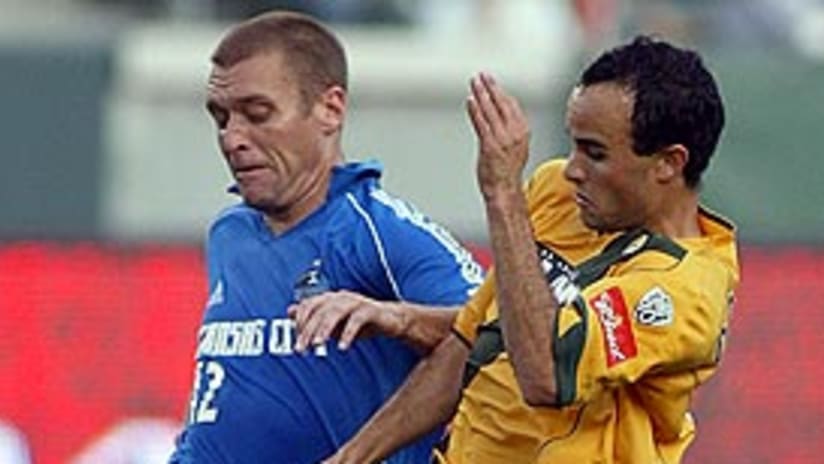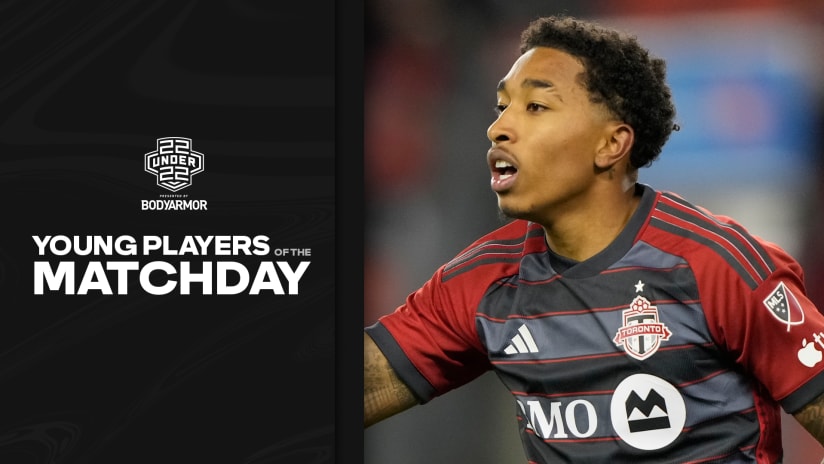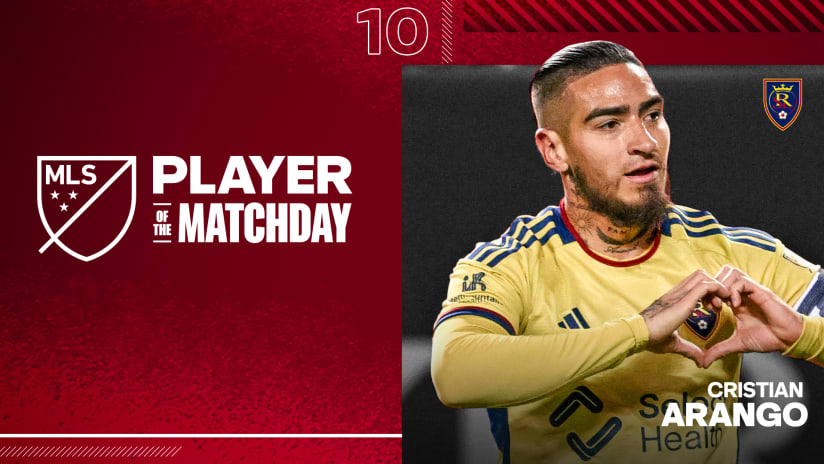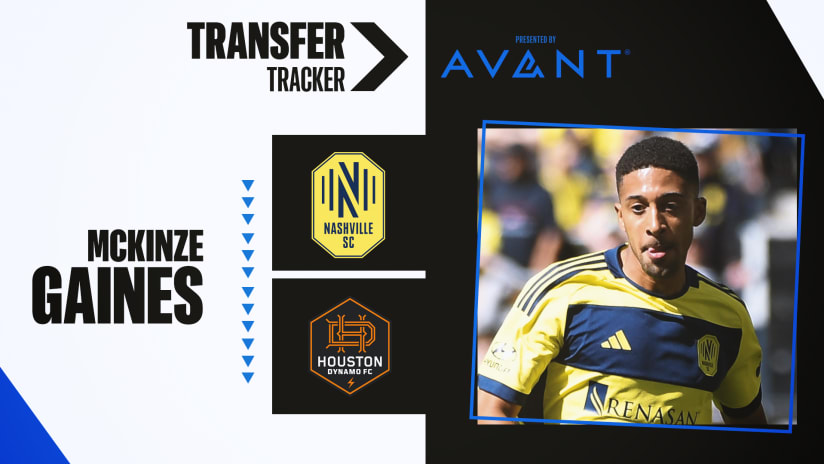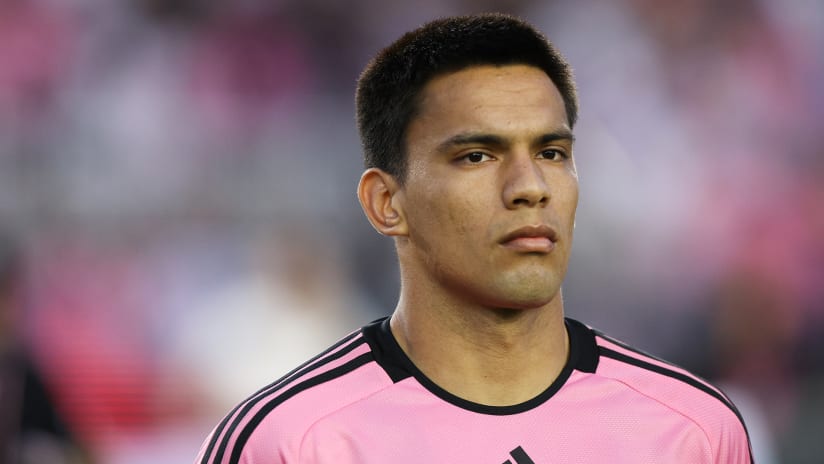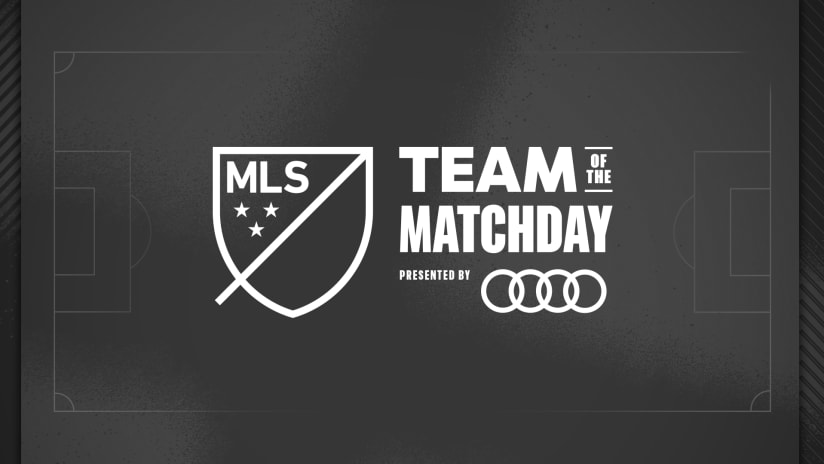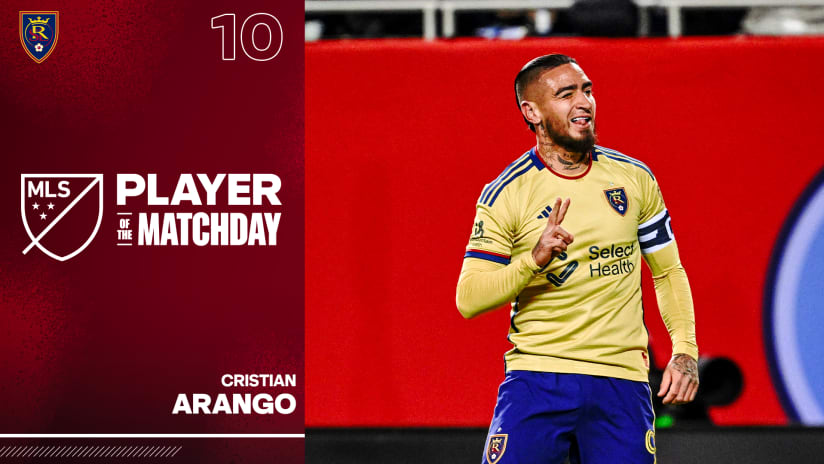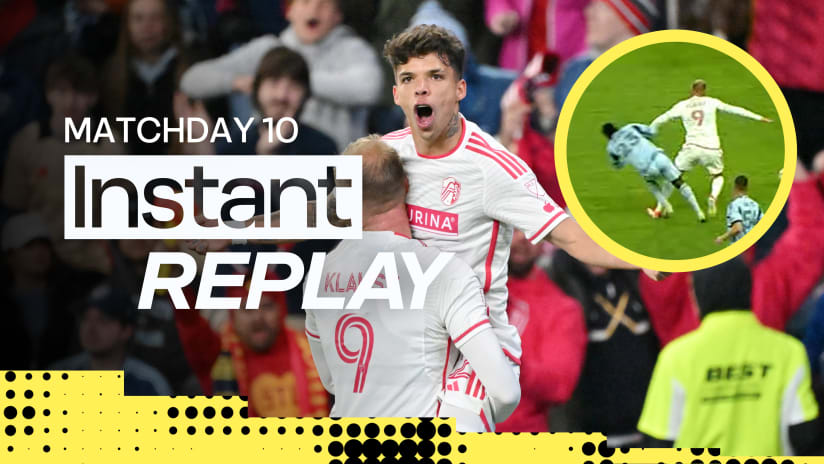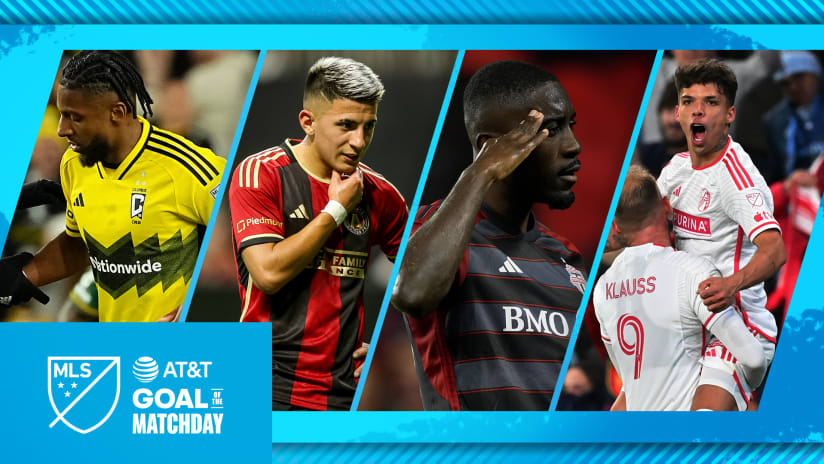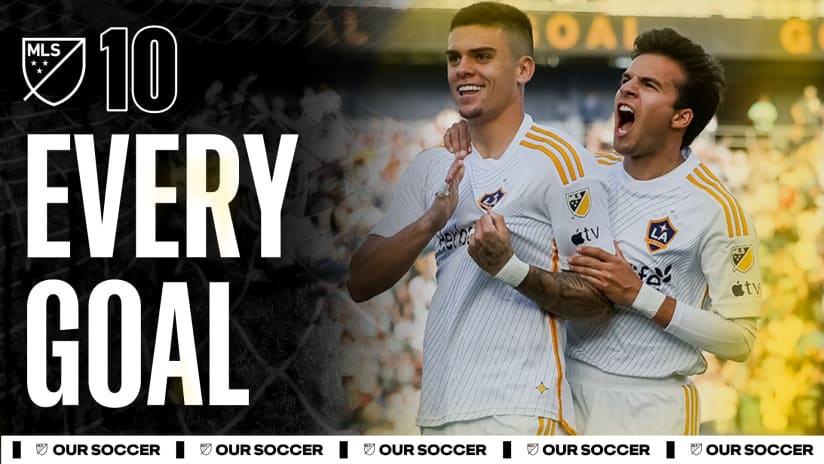KANSAS CITY - Coming into the 2005 Major League Soccer season, the defending Western Conference Champion Kansas City Wizards knew things would be different. After all, they had been moved to the Eastern Conference, and they had worked in the offseason to fine-tune their lineup, particularly the attack.
The arrivals of midfielder Sasha Victorine from the Los Angeles Galaxy and rookie forwards Ryan Pore and Scott Sealy from the SuperDraft, as well as a clean bill of health for midfielders Preki and Chris Klein from debilitating injuries the year before, had coach Bob Gansler feeling optimistic. And the discarding of veteran goalkeeper Tony Meola and forward Igor Simutenkov seemed appropriate.
After an adventurous first two matches in which the Wizards normally solid team defense gave up five goals and a pair of two-goal leads, they still had a win and a tie thanks to their flowing offense. Yet, at the time, midfield utility man Jack Jewsbury was prompted to say "Last year we got some bounces and this year, so far, we're not getting them."
Those words would grow more apt as the season went on. A loss and two ties later, six more goals and two more leads had been surrendered.
"Everybody needs to look at their own breastplate and say, 'This is what I didn't do; this is what I need to do and ought to do better.' That's where we're at," said Gansler after a wild 3-3 tie with Dallas at home May 7 where the Wizards led 3-1 with only 14 minutes to play.
The rest of May would be strong as Kansas City won three of four in three shutouts during the month. But June and July, though even in wins and losses at three, included four ties.
World Cup qualifying call-ups and nagging injuries tested the Wizards' depth as they headed into the All-Star break with only five losses. But their eight ties, one more than their win total, represented lost points and their literal up-and-down performances from half to half of individual games. The attack was inconsistent and the defense was only rarely the dominant force it was in 2004 when the Wizards allowed only a goal per game on average.
After a particularly poor performance in a 2-1 loss on July 4 at Colorado, the players had an impromptu meeting after training the next week.
"As players, we need to get together, and some of the leaders on the team say, 'Hey guys, you know what, now is the time where we've got to step it up. We can't wait anymore until the last three weeks of the season to be playing well. We want to do it right now,'" said Klein.
The comment from general manager Curt Johnson was more to the point. "Bottom line is: that performance on Monday, if we roll that out often, we'll be looking on the outside in for the playoffs."
Johnson and Gansler went searching for more finishing power and brought in Finnish forward Antti Sumiala and Jamaican midfielder Jermaine Hue. Both signed contracts in September, and little-used midfielders Khari Stephenson and Diego Walsh were released.
However August brought a ray of light in the form of a four-game winning streak. Most impressive was that three were road wins, and most promising was that five of the club's last eight matches were at home at Arrowhead Stadium.
"We had a good stretch in August when we had three road games within nine days, going from New England to Salt Lake and stopping in Chicago in between. We won all three games in a different manner and had every right to feel good about ourselves and our performance," said Gansler.
Things were looking up off the field too. After the concurrent subplot of the future of the club after Lamar Hunt put the team up for sale in December 2004, a promising study gauging the feasibility of constructing a soccer-specific stadium and retaining the Wizards across the state line in Kansas was completed in early September. It seemed that the known local group would soon purchase the team and give it some off-field stability.
But Kansas City's brewing cauldron was about to spring a leak as the cracks that had developed all season broke through, beginning with two 1-0 home losses within two weeks. A puzzled Klein summed up the mission for the Wizards, who still had three of five remaining games at home to win the battle with the MetroStars for the last playoff spot.
"People thought we were getting lucky last year dodging bullets; this year I don't think we dodged any." |
|---|
<strong>-- Jimmy Conrad</strong> |
"We talked before the game that you have to win home games if you are going to be successful in this league," he said. "For some reason we haven't done that this year. That's something we have to figure out."
Even though the Wizards had their finger on the problems all season, they simply failed to figure them out. The announcement of MLS legend Preki's retirement failed to put the Wizards over the hump and two losses and three ties later, the MetroStars had beaten out Kansas City on the last day of the season by two points.
And the Wizards were out of the playoffs for the first time in the Gansler era since the 1999 season in which Gansler took the helm - and an 0-7 record - from jettisoned head man Ron Newman.
"It was one of those up and down kind of years; we couldn't get everything straight at the same time," said Victorine. "At the end of the season we had games where we took the lead and ended up giving it away. At the very beginning of the season, we ended up either tying or losing. But in the middle of the season there was a time where we hit game form - sharp and scoring goals and doing well."
Center back Jimmy Conrad reflected Jewsbury's early-season comment when he said, "People thought we were getting lucky last year dodging bullets; this year I don't think we dodged any."
Gansler was introspective when looking back at a season where the magic of the past two campaigns - when the Wizards first knocked on the door of the MLS Cup Final in 2003 in reaching the conference final, then breaking through in 2004 to take on D.C. United for the league title - had vanished and many questions had arisen concerning the future on and off the field.
"We have to make sure we learn a lesson from this. Perhaps the one that jumps out at me early is the fact that perhaps because we thought we had the wherewithal to be a very competitive team this year, is that we felt, 'We'll get this done.' So, it's looking at that next game in order to make your statement and in order to nail things down. You've got to take care of the here and now; you've got to take care of the present," he said.
"These kind of things start with the coaches, but they also include every player [and] every staff member on this squad."
Robert Rusert is a contributor to MLSnet.com. This story was not subject to the approval of Major League Soccer or its clubs.

